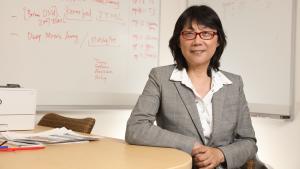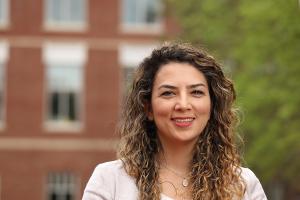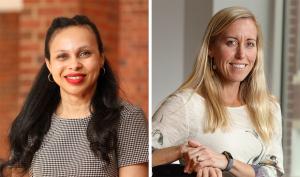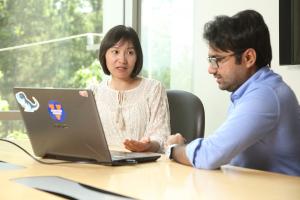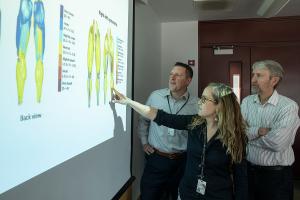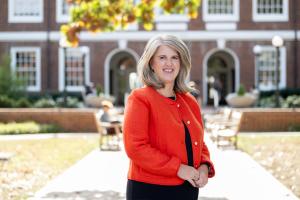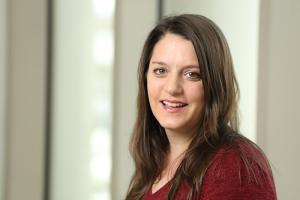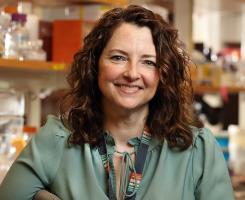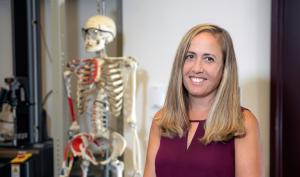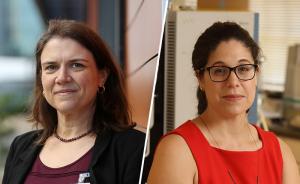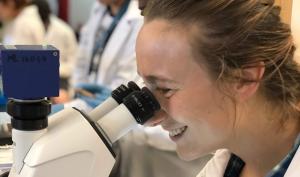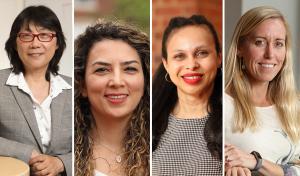
UVA Engineering takes pride in the many innovative researchers among our faculty. Join us in recognizing some of the women who are shaping the future of engineering and medicine, often through the use of artificial intelligence.
Aidong Zhang, the Thomas M. Linville Professor of Computer Science, received $3.8 million across multiple awards to fund research that aims to improve healthcare with AI. Some of her research includes developing a platform for machine learning that will allow doctors to take a comprehensive view of a patient’s risk for certain diseases. She also uses AI on electronic health records to detect patients with undiagnosed Alzheimer’s disease and dementia.
Silvia Salinas Blemker, professor of biomedical engineering, worked with her lab and start-up, Springbok Analytics, to develop an AI-powered software platform that turns magnetic resonance imaging (MRI) into 3D analyses of muscle. The scans are faster than traditional MRIs and can be used to create more accurate musculoskeletal models, which is imperative for addressing injuries in women and a wide range of body types.
A collaboration between Lakeshia J. Taite (assistant professor of chemical engineering) and Shayn M. Peirce-Cottler (Harrison Distinguished Teaching Professor) developed a new analytical tool that could lead to a cure for idiopathic pulmonary fibrosis. The platform can be used to study the formation of blood vessels and may help researchers understand why some lung tissue won’t stop trying to heal, turning pliant tissues stiff until they no longer function. The team also uses AI and machine learning to explore the genes and proteins that could be targets for new treatments.
Miaomiao Zhang, an assistant professor with joint appointments in the Charles L. Brown Department of Electrical and Computer Engineering and the Department of Computer Science, received a CAREER award for her work with AI. Zhang proposed a new set of deep neural networks that will better teach machines to correctly recognize shapes, impacting everything from medical imaging to satellites that monitor environmental changes.
Read these stories and more at the links below.
